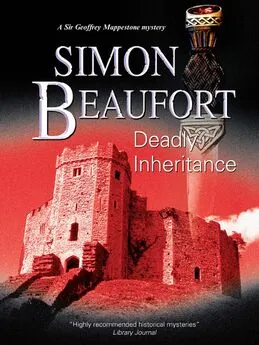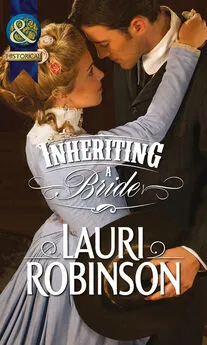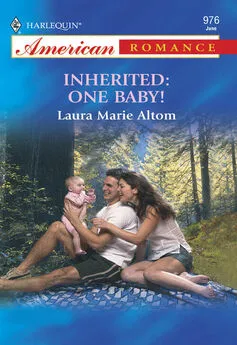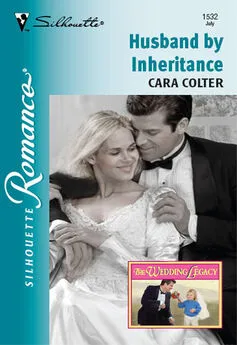Simon Beaufort - Deadly Inheritance
- Название:Deadly Inheritance
- Автор:
- Жанр:
- Издательство:неизвестно
- Год:неизвестен
- ISBN:нет данных
- Рейтинг:
- Избранное:Добавить в избранное
-
Отзывы:
-
Ваша оценка:
Simon Beaufort - Deadly Inheritance краткое содержание
Deadly Inheritance - читать онлайн бесплатно полную версию (весь текст целиком)
Интервал:
Закладка:
‘It was a great day for England when the King exiled Belleme,’ declared Helbye. ‘I am proud of the role we played in getting rid of him.’
Father Adrian nodded before continuing. ‘Like every able-bodied man, Henry had been helping with the threshing. He was tired – as were we all – but instead of going to bed, he turned to wine.’
‘My wife says he did that a lot,’ added Helbye. ‘Henry always liked wine, but he became greedy for it last year.’
‘Why?’ asked Geoffrey. ‘Was he grieving for his children?’
Father Adrian released a startled laugh. ‘He had no affection for them, or for his wife! They were too much like him – selfish, greedy and violent. He intended to start a new family with another woman.’
‘Did he have anyone in mind?’ asked Geoffrey, wondering what lady would be fool enough to consider marrying a man with Henry’s unsavoury reputation.
Adrian nodded. ‘He wanted Isabel, Lord fitzNorman’s youngest daughter.’
Geoffrey was astonished. ‘Surely she was too ambitious a prize? The Constable of the Forest controls a vast region. There must have been better marriages than Henry of Goodrich.’
‘The Constable is a powerful man,’ agreed Father Adrian. ‘The forest’s boundaries stretch from the River Severn to Monmouth, and from Chepstow to Rosse.’
‘I know its size,’ said Geoffrey, wondering why the priest chose to explain facts that he had known since boyhood. ‘But why would Henry think he stood a chance of winning Isabel?’
‘Oh, that is easy,’ said Father Adrian carelessly. ‘She was carrying his child.’
Goodrich Castle guarded the ford of the River Wye on the Gloucester-to-Monmouth road. Like most castles erected following the Conquest in 1066, it comprised a tower-topped motte and an earthwork-enclosed bailey. In Goodrich’s case, the earthworks included a dry moat around its east, south and west sides, while the north made use of the steep, natural slope that ran down to the river.
The stone tower was the strongest part of the castle, with only one way inside: wooden steps from the bailey to the first floor. In the event of an attack, the stairs could be hauled inside, making access more difficult for invaders. The tower had four floors. The lowest was a vaulted chamber used for storage, the first comprised the hall, and the top two contained bedchambers and offices. The roof was battlemented, allowing archers and lookouts to be stationed there.
In Geoffrey’s youth, the tower had been a grim place. Its walls were thick and cold, and his father had not believed in fires unless the weather was particularly foul. Consequently, it had been dank, dismal and uninviting, even on warm days. Wet dogs, stinking floor coverings and spilt food made it reek, and Geoffrey recalled inventing excuses to avoid being in it.
But Joan had changed things. Braziers lit even the most distant corners of the hall, and there was always a fire in the hearth. Its floor was swept after every meal, tapestries adorned the walls and the furniture was comfortable. It seemed a totally different place.
That evening Geoffrey watched her as she sewed in the lamplight. She was tall and strong, with an unsmiling face and flecks of grey in her thick brown hair. She ruled Goodrich with firm efficiency, and Geoffrey was happy to let her continue, although he knew that he should take some responsibility for the lands that were now his. Sitting next to her, strumming on a harp, was her husband, Sir Olivier d’Alencon. He was resplendent in a blue tunic with elegantly embroidered hems and cuffs, and his black hair was neatly trimmed. He was far smaller than Joan, and it never failed to amaze Geoffrey that his burly, gruff sister should lavish her affections on such a puny specimen. It astonished him even more that the feelings were reciprocated.
Like Joan, Geoffrey was tall and well built, although a life of fighting meant that he had remained lean, while she was tending towards fat. He was clean-shaven and his brown hair was cut short. He was unusual for a knight, in that he could read and write; his mother had wanted him to join the Church, but he had rebelled, so his father had sent him for knightly training instead. He had been in the Duke of Normandy’s service, and then a commander for the ambitious Lord Tancred. Now, for the first time since winning his spurs, he was part of no man’s army, although it was not a freedom that he relished. As he listened to Olivier playing a song often sung by Crusaders, he wished with all his heart that Tancred had not dismissed him.
Cautiously – for Joan had a terrible temper – Geoffrey broached the subject of their brother’s plans for the Constable’s daughter. She was unrepentant for neglecting to mention them, which annoyed him: if Henry had impregnated fitzNorman’s daughter, then it was possible that fitzNorman considered Henry – and his kin – an enemy, and Geoffrey did not like the notion that powerful men harboured grudges about which he was blithely unaware.
‘Henry may have been murdered by fitzNorman or his men,’ he said irritably. ‘I am sure the Constable had more ambitious plans for his daughter than the likes of Henry.’
‘You have done this ever since you arrived,’ said Joan, setting down her sewing to glare at him. ‘Underestimate the value of our estates. Besides this castle and its demesne, we have manors in Herefordshire and Gloucestershire. Henry might not have warranted fitzNorman’s eldest daughter, but the youngest was not beyond his sights.’
‘Is it true that she carried his child?’ Geoffrey asked, unconvinced but loath to argue. ‘How did that happen?’
Olivier gave a giggle, which quickly turned into a cough when his wife scowled.
‘How do you think it happened?’ Joan demanded. ‘Surely you have not been away from female company that long?’
‘I meant was Isabel happy with Henry as a suitor?’ said Geoffrey, striving for patience.
‘Isabel detested Henry,’ volunteered Olivier. He shrugged when Joan turned furious eyes on him. ‘Geoffrey will find out from someone else if we do not tell him. Ergo, we should answer his questions lest he starts interrogating the wrong people.’
Geoffrey was immediately suspicious. ‘What do you mean? What wrong people ?’
Joan glared at her husband. ‘I thought we had agreed the less said, the better.’
‘If Geoffrey wants to look into Henry’s death, we cannot stop him,’ said Olivier. ‘Kings and princes have employed him to investigate far more dangerous matters. Tell him what he wants to know.’
Joan sighed loudly. ‘It is not him I am worried about. It is Goodrich. Several people had cause to want Henry dead, and I do not want him accusing them of murder. He could do a great deal of damage by interfering.’
‘He could,’ acknowledged Olivier. ‘We have Baderon poised on one side, fitzNorman on the other, and we are trapped in the middle.’
‘I have done my best to salve the wounds inflicted by our father and brother,’ Joan said, ‘but this is an uneasy region. Baderon is a decent man, but he is so determined to have peace with the Welsh that he infuriates the English.’
‘He always sides with them in disputes,’ agreed Olivier. ‘And this business of marrying his knights to Welsh ladies is causing resentment.’
‘Meanwhile, fitzNorman is a senseless oaf,’ Joan declared uncompromisingly. ‘He applies harsh laws to the royal forests ruthlessly – peasants forbidden to gather firewood, or catch game – it is impractical in hard times.’
‘And times are hard right now,’ nodded Olivier. ‘We had a poor harvest followed by a fierce winter. People are starving, and the King comes to the forest so rarely that he would not miss the odd duck or deer.’
‘What did fitzNorman say when he discovered what Henry had done to Isabel?’ asked Geoffrey, thinking that the seduction of a daughter was a good motive for murder.
‘That he was happy to secure an alliance with Goodrich,’ said Joan. ‘He said we provide a friendly buffer between him and Baderon. Unfortunately, he was angry at the way Henry went about it.’
‘Ralph de Bicanofre was none too pleased, either,’ said Olivier. He turned to Geoffrey. ‘Bicanofre is the little manor to the south of Goodrich, and its heir, Ralph, wanted to marry Isabel himself: he was incensed when Henry deflowered her.’
‘Baderon was offended by Henry, as well,’ added Joan. ‘He, too, wanted Goodrich as a buffer, and there was talk of Henry marrying his daughter. Henry would not have her, but I suspect Baderon had not given up hope.’
‘So,’ summarized Geoffrey. ‘Two of the richest men in the region – Baderon and fitzNorman – were angered by Henry’s relationship with Isabel, as was Ralph. Any of them – or their retainers – might have murdered Henry.’
‘They are not the only ones,’ said Joan gloomily. ‘Henry did a lot of damage by burning our Welsh neighbours’ grain stores, too.’
Geoffrey was appalled. ‘He fired their granaries?’
Joan nodded. ‘Caerdig of Llan Martin is the only Welsh lord friendly to us now. The rest say our corn should be used to compensate them – and they have a point. It is only a matter of time before hunger leads them to attack us.’
‘Welsh harvests were even worse than English ones,’ said Olivier. ‘But you already know that.’
Geoffrey nodded. ‘The Welsh Prince Iorwerth summoned his warriors to fight for Belleme against the King last summer, although he then changed sides. But the war kept men from their farms.’
‘And now they are paying the price,’ said Joan. ‘By the time the men returned home, rains had ruined the crops. Many Welsh villages only harvested a fraction of the grain they need. So, the situation is delicate. I know you want to bring Henry’s killer to justice, but we cannot afford a feud with Baderon or fitzNorman – and we certainly must not give the Welsh a reason for attacking us.’
‘I will be discreet,’ said Geoffrey, unwilling to let the matter drop. Henry was his brother, and if one Mappestone could be slain, then so could another.
Joan gave a disbelieving snort. ‘You will not! Your idea of discretion is to ask questions at the end of a sword. Henry is dead, Geoff, and no good can come of looking into his end.’
Geoffrey stared into the flames. Was she right? Was it best to maintain the tenuous truces between Goodrich and its neighbours at all costs? He had seen what happened to manors owned by warring lords, and knew that it was not only the owners who suffered: the peasantry were victims, too. Perhaps Joan was right to preserve stability at the expense of letting her brother’s killer go free. Or did she have another reason for wanting the murder forgotten? Everyone agreed that Henry had been a tyrant, and few tears had been shed when he died. Perhaps she already knew who killed him, and her motive to keep Geoffrey from investigating was not to avert a war, but to protect the killer.
Joan changed the subject when Geoffrey made no reply, unaware that he had reached a decision. He would not rest easy until he understood why his brother had been murdered, and Joan’s urging him to forget the matter only made him more determined to learn what had happened.
The following morning Geoffrey threw open the window shutters in the room that had been his father’s. In the foreground meadows stretched to the River Wye, divided into neat fields of wheat, oats and barley. In the distance hills were dotted white with sheep. The great brown-green mass of the forest lay to the south and east, a vast tangle of trees and scrub, broken by the occasional path.
Читать дальшеИнтервал:
Закладка:








